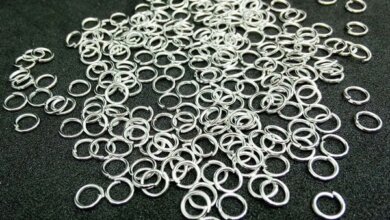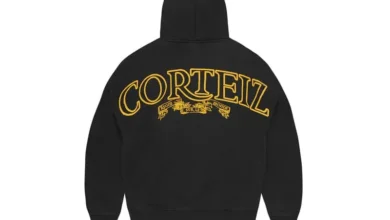Aluminum Foil Container – The Smart Choice for Packaging and Storage
The Packaging Revolution with Aluminum Foil Containers
In today’s fast-paced world, the demand for efficient, hygienic, and eco-friendly packaging is skyrocketing. Among the top contenders meeting this demand is the aluminum foil container. These containers have become a staple in food packaging and various other industries due to their lightweight, high-barrier protection, and recyclability.
Whether you’re a restaurateur, caterer, or homemaker, aluminum foil containers offer unmatched utility, making them the go-to packaging option for both storage and transport.
What Are Aluminum Foil Containers?
An aluminum foil container is a disposable container made primarily from aluminum metal. They are commonly used to store food items because of their excellent thermal and barrier properties. These containers come in various sizes and shapes, suited for baking, roasting, grilling, freezing, and serving.
Why Aluminum Foil Containers Are Gaining Popularity
1. Heat Resistance and Versatility
Aluminum foil containers can withstand both freezing and high-temperature oven conditions. They are ideal for:
- Baking and roasting
- Grilling and barbecuing
- Freezing leftovers or prepared meals
2. Hygienic and Safe
Aluminum is non-toxic and does not react with food. These containers maintain the hygiene and freshness of food, making them ideal for storing:
- Hot meals
- Ready-to-eat snacks
- Baked goods
3. Lightweight Yet Durable
They are easy to handle and strong enough to carry substantial weight without bending or breaking.
4. Recyclable and Eco-Friendly
Aluminum can be recycled multiple times without losing quality. It supports sustainable packaging initiatives and is a favorite among environmentally conscious consumers.
5. Cost-Effective
Bulk purchasing and minimal storage requirements make aluminum foil containers a cost-efficient solution for businesses.
Common Applications of Aluminum Foil Containers
Food Industry
- Takeaway and delivery meals
- Airline catering
- Bakery packaging
- Frozen meals
- BBQ and grill trays
Medical and Pharma Industry
- Storage of sterile tools
- Sample collection
- Heat-sealing containers for temperature-sensitive materials
Household Use
- Meal prepping and freezing
- Picnics and outdoor events
- Baking and roasting trays
Advantages Over Other Packaging Materials
| Feature | Aluminum Foil Container | Plastic Container | Paper Packaging |
| Heat Resistance | High | Low | Moderate |
| Eco-Friendly | Highly recyclable | Limited | Varies |
| Barrier to Light & Moisture | Excellent | Poor | Poor |
| Reusability | Yes (in some cases) | Limited | No |
Innovations in Aluminum Foil Containers
1. Multi-Compartment Designs
Perfect for packaging complete meals without mixing components.
2. Colored and Embossed Foil
Brands are using colorful and textured foil containers for premium presentation.
3. Sealable Lids
Lids made of paperboard or transparent plastic enhance usability and presentation.
4. Induction and Microwave Safe Coatings
Modern containers come with special coatings to allow safe microwave usage.
Quality and Safety Standards
Manufacturers adhere to global safety standards such as:
- FDA regulations for food contact materials
- ISO 9001 and ISO 22000 certifications
- HACCP compliance for food safety
Always look for containers from certified manufacturers to ensure hygiene and safety.
Choosing the Right Aluminum Foil Container
Purpose: Define whether you need it for freezing, baking, or reheating.
Size and apacity: Choose based on portion sizes or storage requirements.
Coating and Lid Options: Opt for special coatings or lids for better usability.
Recyclability: Go for containers made from 100% recyclable materials.
Case Study: A Bakery’s Success Story
Bake & Delight, a homegrown bakery in Dubai, switched to aluminum foil containers for their delivery packaging. The results:
- 30% improvement in customer satisfaction
- Enhanced freshness of baked items
- Reduction in complaints about leakage and sogginess
- Easier and safer transport
Global Demand and Market Outlook
The global aluminum foil container market is expected to grow steadily, driven by:
- Surge in food delivery and cloud kitchens
- Environmental regulations favoring recyclable packaging
- Increased consumer awareness of food hygiene
The Asia-Pacific region, especially the UAE and India, has seen rapid adoption of foil containers in both the food and pharmaceutical sectors.
Recommendation: Choose a Trusted Manufacturer
For those seeking premium quality and reliability in aluminum packaging, we recommend Zubairi Plastics. Known for its high-grade materials, modern designs, and industry compliance, Zubairi Plastics delivers:
- Customized foil container solutions
- Competitive pricing for bulk orders
- On-time delivery
- Sustainable production practices
How Businesses Can Elevate Their Brand Using Aluminum Foil Containers
Branding is no longer limited to just logos and colors; even packaging choices speak volumes. By customizing aluminum foil containers with logos, embossing, or thematic printing, businesses can create a strong impression. Branded containers not only increase brand recall but also enhance customer trust in product hygiene and quality.
This small touch can make a big impact, especially for home delivery services and takeaway brands. Adding QR codes, hashtags, or sustainability pledges can also engage customers more deeply with your brand.
The aluminum foil container is more than just a packaging solution—it’s a smart choice for hygiene, sustainability, and convenience. As businesses and households continue to prioritize safety and eco-consciousness, aluminum containers remain a practical and reliable option.
Whether you’re a business looking to enhance your food packaging or an individual focused on safe and eco-friendly storage, aluminum foil containers offer the versatility, safety, and environmental responsibility needed in today’s world.
Make the switch today and experience the many benefits that come with using aluminum foil containers.




